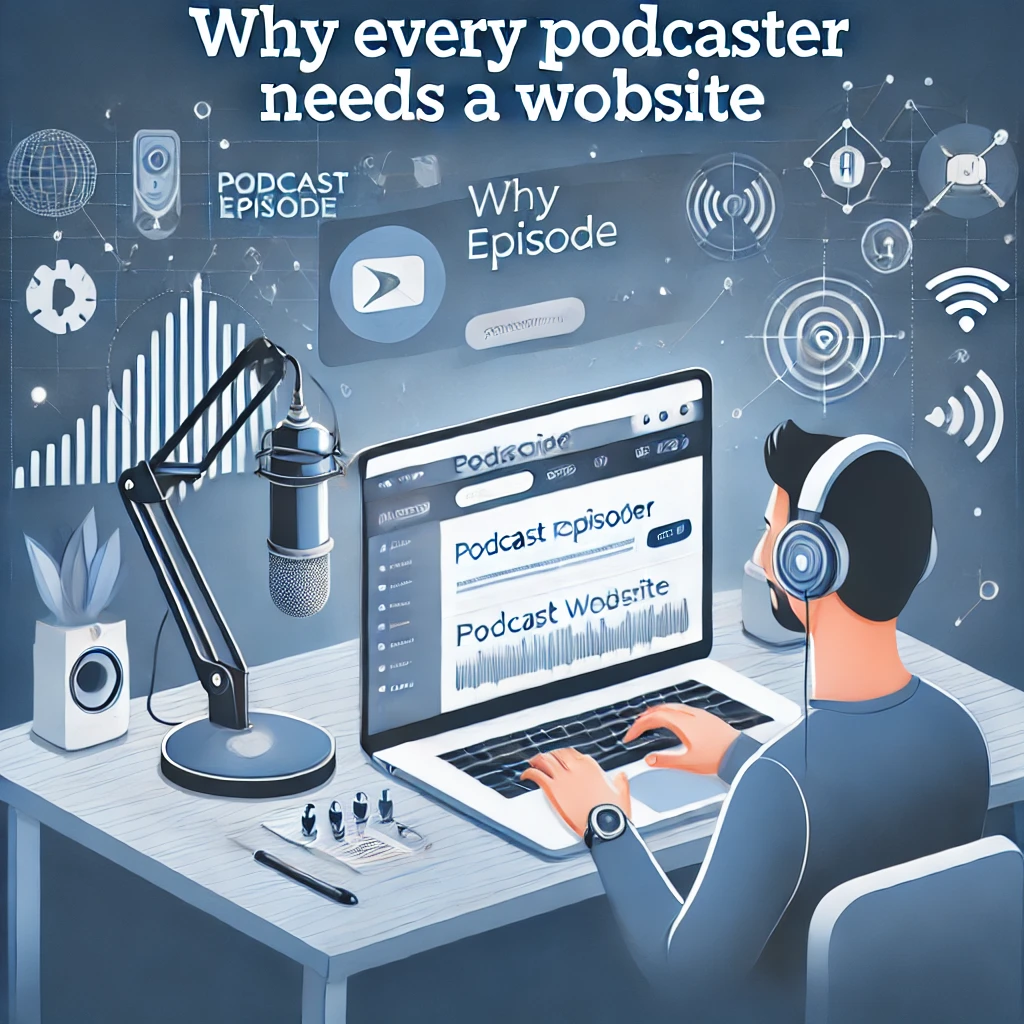
For many podcasters, the journey is full of passion and great stories—but when it comes to growing an audience and turning it into a revenue stream, a key piece often gets overlooked: your podcast website. Today, we're diving into why having a solid podcast website is crucial for growth, how it addresses many pain points, and how a tool like Podpage can help you make this easier.
Why Your Podcast Website Matters
A podcast website serves as your home base on the internet. Sure, people can find your show on Apple Podcasts, Spotify, or even Google, but when it comes to creating a deeper connection and giving your audience a place to learn more about you and your episodes, a website is essential. Let’s break down the most significant pain points many podcasters face when it comes to their podcast website:
1. No Website at All
If you’re starting, you may not even have a website yet. This means there’s no central hub for your listeners to find all the information they need about your show—like upcoming episodes, show notes, or ways to get in touch. This limits your podcast’s discoverability and doesn’t give it a professional appearance to new potential listeners.
With a service like Podpage, you can quickly build a professional podcast website in minutes. It’s specifically designed for podcasters, so no coding or extra tools are required.
2. Difficulty With SEO
Search Engine Optimization (SEO) can be a tough nut to crack, especially if you’re unfamiliar with digital marketing. A well-optimized website can help new listeners find your podcast through search engines, but SEO involves technical knowledge many podcasters aren’t comfortable with.
Podpage automatically generates SEO-friendly pages for your episodes, which means you have a much better chance of showing up when people search for topics you cover. This helps you attract new listeners who might not have found you otherwise.
3. Clunky User Experience
Another issue podcasters run into is creating a user-friendly site without needing to learn how to code or pay a developer. If your site doesn’t look polished or is difficult to navigate, potential listeners may leave before pressing play.
With tools like Podpage, you get beautiful layouts built specifically for podcast audiences. Your listeners can easily find episodes, subscribe to your show, or leave a review—all in one place.
4. Engaging with Your Audience
Having a website makes it easier to engage with your listeners beyond what podcast platforms allow. Whether you want to collect email addresses for a newsletter, provide show notes, or even accept listener questions, a website gives you that space.
Podpage includes features like listener feedback forms and newsletter integration, which can be great for building stronger relationships with your audience. When your listeners feel connected, they’re likelier to share your show with others.
5. Monetization
Finally, there’s the question of monetization. A website is necessary if you want to bring in some income from your podcast. With a site, you can include affiliate links, create a merch store, or provide extra content behind a paywall.
Podpage can help by giving you the tools to easily create pages where you can link to sponsors or provide a space for exclusive subscriber-only content.
How Podpage Makes It Easier
Podpage was made for podcasters who want a streamlined solution that eliminates the headaches of maintaining a site. Here are just a few features that make Podpage ideal:
- Episode Pages: Automatic episode pages are created whenever you release a new episode.
- Reviews: Add your show reviews to your website to build social proof.
- Built-In Player: Embed a podcast player on your site so people can listen without leaving the page.
The best part is that Podpage is designed to grow as you grow. As you scale your podcast, your website scales with you without the additional complexity.
Take Control of Your Podcast's Future
Having a dedicated website is necessary if you’re ready to take your podcast to the next level. Not only does it help your podcast be more discoverable and approachable, but it also helps with long-term growth and listener engagement. With tools like Podpage, setting up and managing your podcast website doesn’t have to be complicated.
Give it a try, and see how easy it can be to solve these common pain points for podcasters. You’ll thank yourself when your listeners know exactly where to find you, and new opportunities start coming your way.




